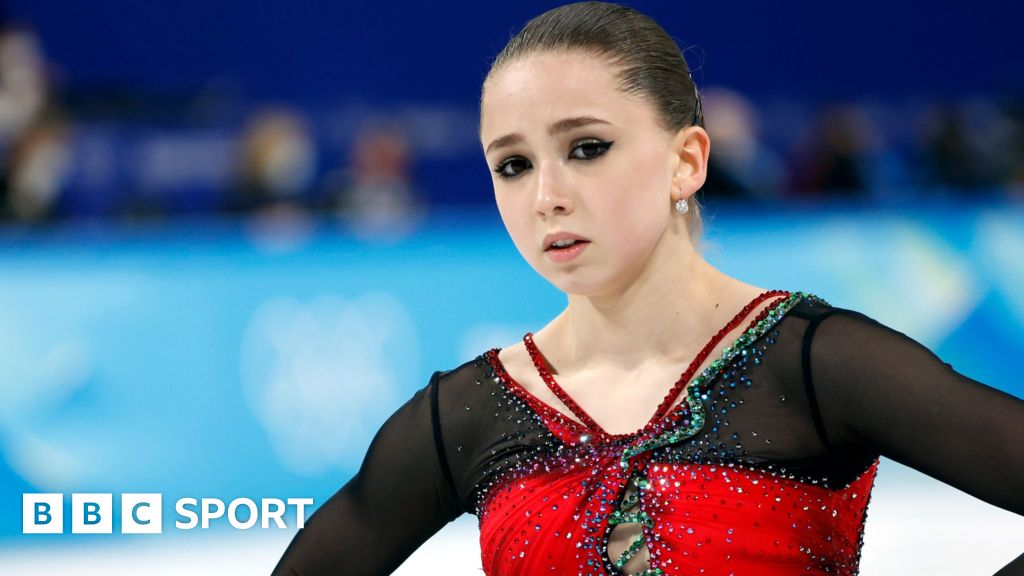
A “dignified medal ceremony” will take place for athletes who missed out when Russian figure skaters took team gold at the 2022 Winter Olympics in Beijing.
Medals were never awarded for the event after Russia’s Kamila Valieva failed a doping test.
Valieva, 17 – who was aged 15 at the time – received a four-year ban on Monday.
“We have great sympathy with the athletes who have had to wait,” the International Olympic Committee said.
A Court of Arbitration for Sport (Cas) ruling also expunged Valieva’s results from 25 December 2021 – the date of her failed test and also the start of her backdated ban.
The sport’s governing body the International Skating Union (ISU) on Tuesday relegated the Russian team to the bronze medal position after removing Valieva’s scores.
The United States finished in the silver medal position and will now be awarded gold, with Japan elevated to silver.
It had been anticipated that Canada would receive bronze following their fourth-place finish two years ago.
However they finished one point behind the Russian team once Valieva’s points were removed.
On Monday the Canadian Olympic Committee (COC) issued a statement congratulating “the affected Team Canada athletes for their incredible performances two years ago, and their enduring strength of character during this long process”.
“The IOC welcomes the fact that the Cas ruling provides clarity in this case, and the athletes from the team figure skating competition at the Olympic Winter Games Beijing 2022 can finally get their medals, for which they have been waiting so long,” an IOC spokesperson said on Tuesday.
“The IOC is now in a position to award the medals. We have great sympathy with the athletes who have had to wait for two years to get the final results of their competition.”
The IOC said it will contact the relevant nations’ Olympic Committees “in order to organise a dignified Olympic medal ceremony”.
Of Valieva’s case, the IOC added: “[It is] further proof of the need to address the part played by the athletes’ entourage in doping cases. This is even more important if the athletes are minors, who are even more reliant on their entourage.”
News of Valieva’s failed test only emerged after she had helped Russia to team gold.
A Russian Anti-Doping Agency (Rusada) investigation later found the teenager bore “no fault or negligence” for the failed test. Her team has always maintained “contaminated cutlery” led to her accidentally ingesting some of her grandfather’s heart medication – trimetazidine, which is a banned substance for athletes.
The World Anti-Doping Agency (Wada) and the ISU appealed against that finding and Cas upheld their appeal.
“We now anticipate the day when we can wholeheartedly celebrate these athletes, along with their peers from around the world,” Sarah Hirshland, chief executive officer of the United States Olympic and Paralympic Committee, said following Monday’s verdict.
The Kremlin has said it does not accept the Cas ruling and will defend the rights of Russian athletes.